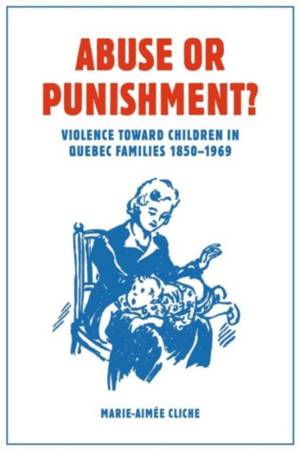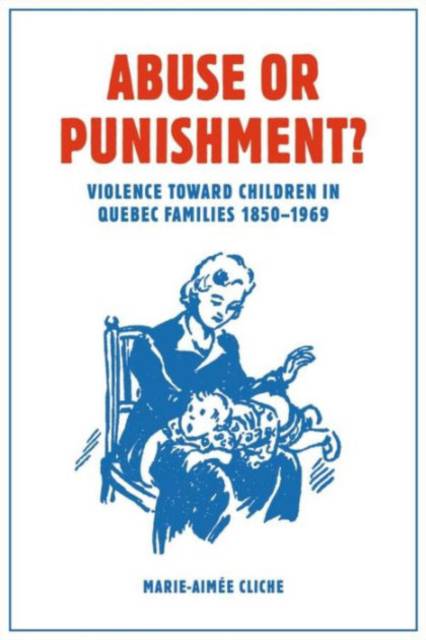
Bedankt voor het vertrouwen het afgelopen jaar! Om jou te bedanken bieden we GRATIS verzending (in België) aan op alles gedurende de hele maand januari.
- Afhalen na 1 uur in een winkel met voorraad
- In januari gratis thuislevering in België
- Ruim aanbod met 7 miljoen producten
Bedankt voor het vertrouwen het afgelopen jaar! Om jou te bedanken bieden we GRATIS verzending (in België) aan op alles gedurende de hele maand januari.
- Afhalen na 1 uur in een winkel met voorraad
- In januari gratis thuislevering in België
- Ruim aanbod met 7 miljoen producten
Zoeken
€ 78,95
+ 157 punten
Omschrijving
At one time, the use of corporal punishment by parents in child-rearing was considered normal, but in the second half of the nineteenth century this begin to change, in Quebec as well as the rest of the Western world. It was during this period that the extent of ill-treatment inflicted on children--treatment once excused as good child-rearing practice--was discovered.
This book analyzes both the advice provided to parents and the different forms of child abuse within families. Cliche derives her information from family magazines, reports and advice columns in newspapers, people's life stories, the records of the Montreal Juvenile Court, and even comic strips. Two dates are given particular focus: 1920, with the trial of the parents of Aurore Gagnon, which sensitized the public to the phenomenon of "child martyrs;" and 1940, with the advent of the New Education movement, which was based on psychology rather than strict discipline and religious doctrine. There has always been child abuse. What has changed is society's sensitivity to it. That is why defenders of children's rights call for the repeal of Section 43 of the Canadian Criminal Code, which authorizes "reasonable" corporal punishment. Abuse or Punishment? considers not only the history of violence towards children in Quebec but the history of public perception of this violence and what it means for the rest of Canada.Specificaties
Betrokkenen
- Auteur(s):
- Vertaler(s):
- Uitgeverij:
Inhoud
- Aantal bladzijden:
- 400
- Taal:
- Engels
- Reeks:
Eigenschappen
- Productcode (EAN):
- 9781771120630
- Verschijningsdatum:
- 19/09/2014
- Uitvoering:
- Paperback
- Formaat:
- Trade paperback (VS)
- Afmetingen:
- 152 mm x 226 mm
- Gewicht:
- 576 g

Alleen bij Standaard Boekhandel
+ 157 punten op je klantenkaart van Standaard Boekhandel
Beoordelingen
We publiceren alleen reviews die voldoen aan de voorwaarden voor reviews. Bekijk onze voorwaarden voor reviews.









